Premium Only Content
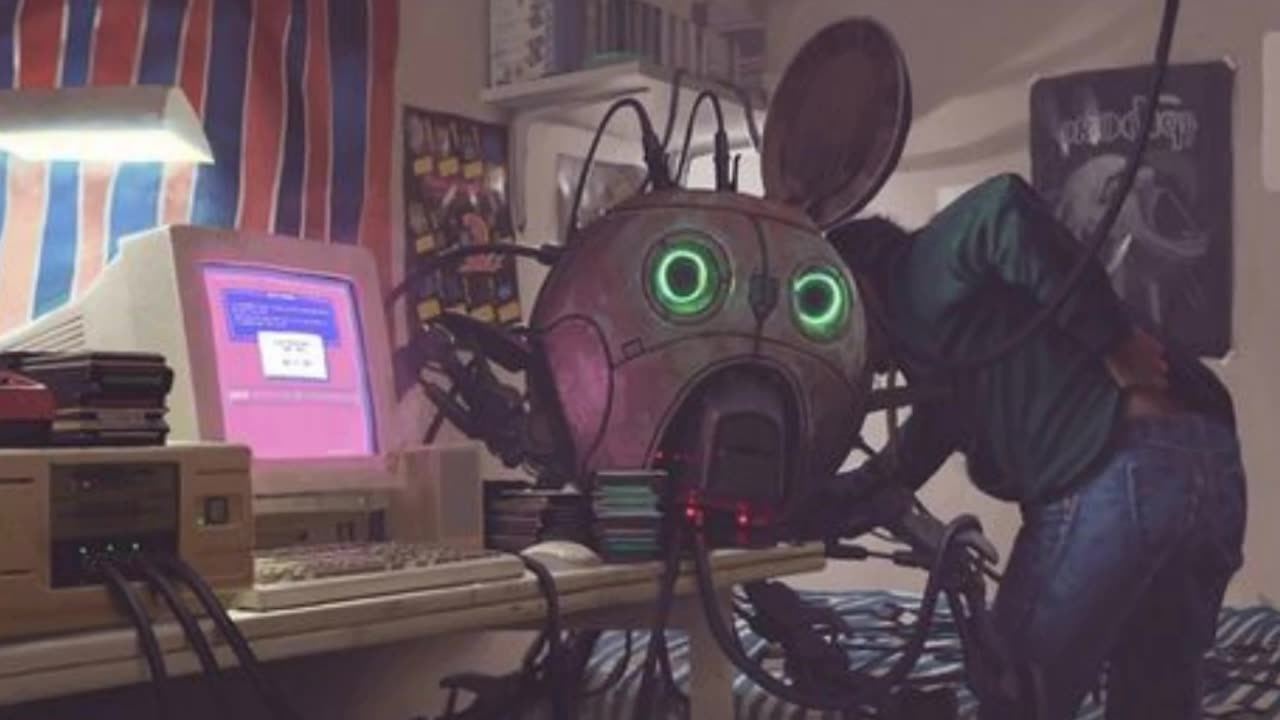
No Surprises Karma Police Creep Radiohead
No Surprises Album: OK Computer (1997)
Karma Police Album: OK Computer (1997)
Creep Album: Pablo Honey (1992)
by Radiohead
All art is not exclusively Simon Stålenhag, but all art is Stålenhagish. It's what I tied the room togeather with.
Radiohead lead singer Thom Yorke: "I spent a lot of time trying not to do voices like mine. The voices on 'Karma Police,' 'Paranoid Android' and 'Climbing up the Walls' are all different personas. No Surprises is someone who's trying hard to keep it together but can't."
Bassist Colin Greenwood: "'No Surprises' is our 'stadium-friendly' song. The idea was: First frighten everyone with Climbing Up The Walls and then comfort them again with a Pop song with a chorus that sounds like a lullaby."
Thom Yorke introduced the rest of the band to this song in their dressing room in Oslo, Norway, following a support gig to REM on August 3,1995. Later the lyrics were rewritten and a new glockenspiel melody was added.
Yorke (from Humo magazine July 22, 1997): "We wanted it to have the atmosphere of Marvin Gaye. Or Louis Armstrong's 'Wonderful World.'"
Thom Yorke told Q magazine a song such as "No Surprises" has to be played a certain way for it to work live. "If you play it right, it is f--king dark," he said. "But it's like acting. It's on the edge of totally hamming it up but you're not. It's just the words are so dark. When we play it, we have to play it slow. It only sounds good if it's fragile."
The video for No Surprises, directed by Grant Lee, is one continuous shot of Yorke, who is trapped in a water chamber that fills midway through the song. He holds his breath for nearly a minute before the water recedes, at which point he gasps for breath and continues miming the song.
Karma Police is about fate and how it will always catch up with you. The band members used to warn each other that the "karma police" would get them if they didn't behave.
Thom Yorke: "Karma is important. The idea that something like karma exists makes me happy. It makes me smile. 'Karma Police' is dedicated to everyone who works for a big firm. It's a song against bosses."
The video for Karma Police is one of the most memorable of its era. Directed by Jonathan Glazer, who had previously worked on the Radiohead video for "Street Spirit (Fade out)," it shows Thom Yorke in the back seat of a 1976 Chrysler New Yorker, which is driven down a dark road by a driver we never see. When a disheveled man appears in the headlights running from the vehicle, it seems whoever is in the car is after him. But then this man lights a book of matches and ignites a trail of gasoline that leads to the vehicle, setting it on fire.
The video seems suited for the song, as karma strikes the driver, but Glazer didn't write it with Radiohead in mind. He came up with the idea for Marilyn Manson, who was looking for a video for his song "Long Hard Road Out of Hell" and had Glazer watch the David Lynch film Lost Highway for inspiration. In the opening credits of the film, a car is driving down a dark, deserted road, shot from the perspective of the vehicle looking down on the road. This image formed the basis of Glazer's story, but Manson rejected it. Radiohead was much more receptive, and took the idea.
The video for Karma Police was championed by Matt Pinfield, host of the MTV show 120 Minutes, where it got lots of exposure in America.
Guitarist Ed O'Brien said in an interview in Humo magazine: "When someone in the band behaved like an a--hole, one of the others always said: 'The Karma Police is gonna get you.' I suppose it's all rubbish that your destiny depends on your deeds in a previous life, but you have to trust on something."
The video was shot in Cambridgeshire, England in a shoot that required a number of takes and some digital trickery to get the shot of the trail of fire. The actor playing the man on the road burned his thumb from repeatedly lighting the book of matches; that fire and the first few feet of the trail were real, but the rest of it was shot under similar conditions (and at the same angle) nearby and superimposed onto the shot.
According to OK Computer producer Nigel Godrich, the wall of feedback that makes up the second half of the song is something he and Yorke came up with on their own in the studio after Yorke told him he didn't like what they had down for that part of the song. "It's not like the band playing," Godrich told Rolling Stone. "It's just samples and loops and his sort of thing over the top, which sort of was the forerunner of a lot of things to come, good or bad."
What was to come was the next Radiohead album, Kid A, which fragmented the band as it was done largely in pieces composed by Yorke using electronic instruments.
There is a lot of self-loathing in Creep, where Radiohead frontman Thom Yorke sings, "But I'm a creep, I'm a weirdo."
When asked about Creep in 1993, Yorke said, "I have a real problem being a man in the '90s... Any man with any sensitivity or conscience toward the opposite sex would have a problem. To actually assert yourself in a masculine way without looking like you're in a hard-rock band is a very difficult thing to do... It comes back to the music we write, which is not effeminate, but it's not brutal in its arrogance. It is one of the things I'm always trying: To assert a sexual persona and on the other hand trying desperately to negate it."
On the other hand, guitarist/keyboardist Jonny Greenwood said Creep was in fact a happy song about "recognizing what you are."
Yorke says this is about being in love with someone, but not feeling good enough. He describes the feeling as, "There's the beautiful people and then there's the rest of us."
Yorke wrote Creep in 1987 while he was a student at Exeter University in England. He first recorded it acoustic.
This was written before the band formed. Yorke gave his demo version to Colin Greenwood, who joined him and helped put the band together.
"Creep" wasn't released in the US until Radiohead's debut album in 1993. The band finished college and signed their record deal in 1991.
Yorke based this on a song called "The Air That I Breathe," which was written by Albert Hammond and Mike Hazlewood in 1972. After "Creep" was released, Radiohead agreed to share the songwriting royalties, so this is credited to Yorke, Hammond and Hazlewood.
Creep did well in the US, but not in their native England. When they released their third album, O.K. Computer, Radiohead was huge in England but not in the US.
On the album version, Thom Yorke sings, "You're so f--king special." For radio, he recut it as, "You're so very special." Yorke regrets changing the line for the radio version, saying it disturbed the "sentiment of the song." According to him, the song lost its anger as a result.
According to Q magazine April 2008, the recording of Creep came about as a result of producers Sean Slade and Paul Q Kolderie struggling with "Inside My Head" and "Lurgee." They remembered a track that that the band had played in rehearsal, introduced by Yorke as "our Scott Walker song." This portrait of an outsider was then recorded in one take.
The video, directed by Brett Turnbull, was recorded at a club in Oxford called The Zodiac.
One of the extras in the crowd scenes is a teenage Kieran Hebden, aka Four Tet. The producer and DJ has remixed Thom Yorke and Radiohead tracks and also supported Radiohead on tour.
This is nicknamed "Crap" by the band due its slacker-anthem ubiquity.
When Creep was first released in England in 1992, the song flopped. It did well when it was re-released a year later, after Radiohead grew a fan base.
The three blasts of guitar noise that precede the chorus was the result of Jonny Greenwood trying to sabotage a tune he considered too "wimpy."
Yorke claims he received fan mail from "murderers" saying how much they could relate to Creep.
Prince performed Creep at the Coachella Valley Music and Arts Festival in 2008. He also played Sarah McLachlan's "Angel" and The Beatles' "Come Together."
Creep returned to the UK singles chart in August 2010 after X-Factor auditionee Hollie Burns performed it on the show.
According to the book Radiohead: Hysterical and Useless, this song was inspired by Thom's obsession with a stranger. He was infatuated with a woman who was out of his league, who he'd never met but frequently saw in bars, and he found himself following her around. When he finally got himself drunk enough to build up the courage to confess his obsession, she freaked out.
The first country this charted in was Israel. Coof appropiate Coof
Lea Michele and Dean Geyer performed Creep on Glee in the 2013 episode "Guilty Pleasures."
This was featured on the TV series Community in the 2014 episode "Basic Intergluteal Numismatics."
Charlotte Church cites Creep as the song she wished she'd written. "It's just transcended all musical boundaries," she told NME. "People who are into hip-hop or hard house or whatever like it. There's just something about that song that, no matter who you are, you're going to respond pretty positively to it - especially in a festival situation."
The 2023 movie Guardians of the Galaxy Vol. 3 starts off with a somber Rocket Raccoon (Bradley Cooper) singing "Creep" as he ponders on his traumatic past. Its prominent placement in the film's soundtrack struck a chord with audiences, propelling it back onto the UK Singles chart.
-
 25:56
25:56
Psychological operations
7 days agoI Don't Know Road To Nowhere You Can't Kill Rock And Roll Over The Mountain Suicide Solution
694 -
 LIVE
LIVE
Fairy Mysterious Adventures
3 hours agoStardew with the Rumble crew #16
933 watching -
 1:28:42
1:28:42
Kim Iversen
7 hours agoThe War on Terror Was a Scam? Is Osama Bin Laden Really Dead? SEAL Who Killed Him Breaks It Down.
32.6K82 -
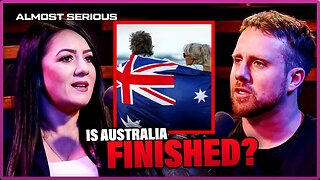 1:09:44
1:09:44
Slightly Offensive
5 hours ago $5.18 earnedALMOST SERIOUS: How Mass Legal Immigration DESTROYED Australia | Guest: Maria Zeee
43K10 -
 2:38:38
2:38:38
TimcastIRL
4 hours agoTrump Orders DOJ To FIRE EVERY Biden Attorney, Calls For CLEAN HOUSE w/Siaka Massaquoi | Timcast IRL
109K63 -
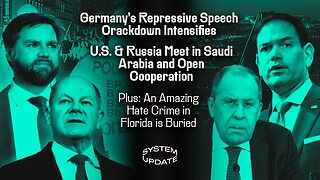 1:29:31
1:29:31
Glenn Greenwald
8 hours agoGermany's Repressive Speech Crackdown Intensifies; U.S. & Russia Meet in Saudi Arabia and Open Cooperation; Plus: An Amazing Hate Crime in Florida is Buried | SYSTEM UPDATE #408
81.3K53 -
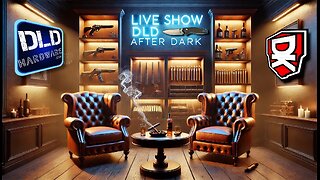
DLDAfterDark
2 hours ago $0.65 earnedDLD Live! What's Your Typical EDC/Civilian Load Out? Guns & Ammo & EDC?
9.56K -
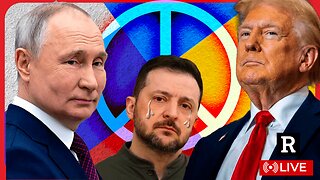 1:30:48
1:30:48
Redacted News
8 hours agoBREAKING! TRUMP AND PUTIN NEARING PEACE BUT EUROPEAN WARMONGERS TRYING TO STOP IT | REDACTED
164K237 -
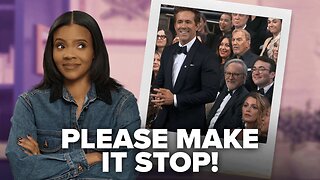 52:40
52:40
Candace Show Podcast
9 hours agoSaturday Night Lively: What Were They Thinking? | Candace Ep 148
142K147 -
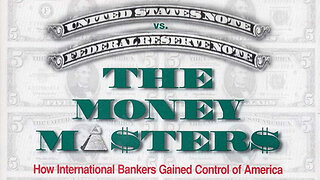 LIVE
LIVE
Man in America
4 hours agoDocumentary: The Money Masters 'How International Bankers Gained Control of America'
1,806 watching